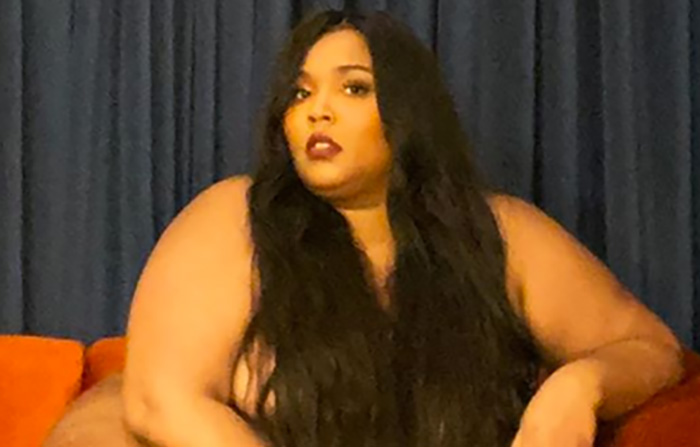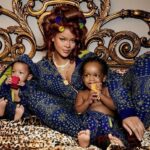Six years have passed since the splintering of Roc-a-Fella Records, the hip-hop label Dash and Jay-Z built into a sprawling entertainment empire. Jay long ago ascended to a rarefied plateau of celebrity where the absurd is normal: He fraternizes with Russian billionaires, taunts Noel Gallagher at Glastonbury, and makes sweet love to Beyoncé on a mattress stuffed with unicorn hair. Dame has not been so fortunate: One by one, his flotilla of business ventures—in music, fashion, sports promotion, publishing, and film—have sunk. Following a much-publicized fall-out with his former cohort, his reputation as a cagey entrepreneur was tarnished, his fortune stripped clean, his marriage to fashion designer Rachel Roy torn asunder. And he is happier than ever before.
Morning sunlight spills into Dash’s office, the man himself splayed across a furry white couch beneath a large, feathered Ojibwa dreamcatcher. He wears a fuchsia T-shirt with diagonal yellow stripes, jeans, and tortoise-rimmed glasses that, when coupled with the flecks of gray in his beard, give him a “rad dad” look. He shares the space with a pair of women in their early 20s who have ascended, in the manner of a metastasizing start-up, from assistants to heads of divisions. The woman who presides over the music wing is also a singer; the one running the magazine America Nu, Dash explains, “loves taking photos and doing artistic things.” He says he prefers working with women because they’re harder to yell at.
In a few hours, the compound will pulse with creative energy: Such up-and-coming rappers as Curren$y and Stalley will record in the music studios, while a video production team called Creative Control works from editing bays. Enjoying the morning’s relative calm, Dash wanders from his office into a wider area where a few people quietly tap away at laptops. “I’m not surrounded by posters of guns and Scarface here,” he notes. There’s no sign of Tony Montana, true, but the gallery walls are covered with stylized portraits of marked militants wielding Kalashnikovs. This is the evolution of Dame Dash.
There’s no shortage of people who’ve made and squandered fortunes in the entertainment world. But [Damon] Dash’s crash was magnified by the success—totally unprecedented, really—that Jay-Z has enjoyed. It would have been acceptable if the rapper had reached an artistic peak after the Roc-a-Fella break-up, but his most notable accomplishments came in Dash’s supposed realm of expertise: marketing, branding, endorsements, and a spiderweb of business deals, including a small stake of ownership in the New Jersey Nets. In 2006, “Lost One,” an early Jay single after his “retirement” hiatus, included what appeared to be a line directed at Dash: “I heard motherfuckers sayin’ they made Hov/Made Hov say, ‘OK, so make another Hov’/Niggas wasn’t playin’ they day role/So we parted ways like Ben and J-Lo.” Both the winner and the loser were clear.
Tension [between the two] had been mounting for more than a year, starting when Dash appointed Cam’ron, a crony from Harlem, one of the label’s vice presidents, while Jay-Z was vacationing in the Mediterranean. Eventually, Jay decided to sever business ties with his fellow [Roc-a-Fella] founders; their stake in the company was sold back to Island Def Jam for a reported $10 million, while controlling interests in the remaining clothing, film, and alcohol ventures were sliced up. Jay signed a three-year contract to become president and CEO of Def Jam—a position he would leave in 2008 for Live Nation. He offered the rights to the name “Roc-a-Fella” to Dash and Biggs in exchange for the recording masters to Reasonable Doubt, but the pair wouldn’t make the deal.
“We all earned those masters,” Dash says. The people that I was helping, once they realized their dreams, they did what a criminal would do. They stabbed you in the back. Think about the frustration of building a brand for years that should be taking care of your family, and then the person that was the closest to you saying, ‘Nah, you can’t have no parts of it,’ and flushing it.”

![Da Brat Marries Judy Dupart on 2.22.22 [PHOTOS]](https://hiphopucit.com/wp-content/uploads/2022/02/1645669184565-440x264.jpeg)
![Drake Reveals Photos of His Son Adonis [Photos]](https://hiphopucit.com/wp-content/uploads/2020/03/Drake-and-on-Adonis-HHUCIT.jpg)

![Megan Thee Stallion – “BOA” [NEW VIDEO]](https://hiphopucit.com/wp-content/uploads/2024/05/Megan_Thee_Stallion___BOA__Official_Video__1_12_screenshot-440x264.jpg)
![Doechii Feat. JT – “Alter Ego” [NEW VIDEO]](https://hiphopucit.com/wp-content/uploads/2024/05/Screenshot-of-Doechii-and-JTs-Al-440x264.png)
![Young Thug Feat. Drake Drop – “Oh U Went” [NEW VIDEO]](https://hiphopucit.com/wp-content/uploads/2023/07/Young-Thug-and-Drake-1014x570-1-440x264.png)

![Cash Money, Nicki Minaj, Birdman & Slim Honored at The BMI R&B/Hip-Hop Awards [VIDEO]](https://hiphopucit.com/wp-content/uploads/2013/08/20130824-072501.jpg)





